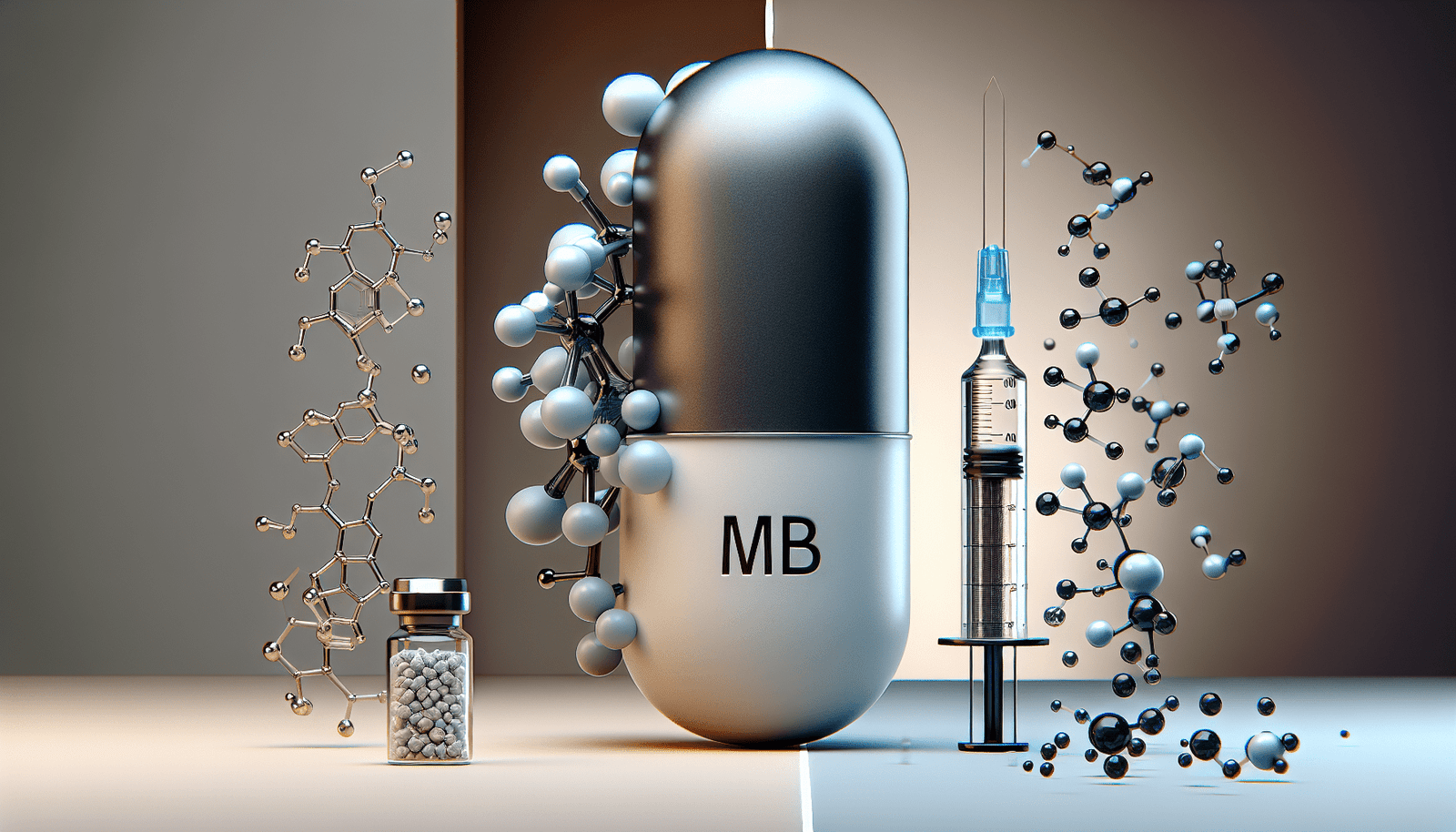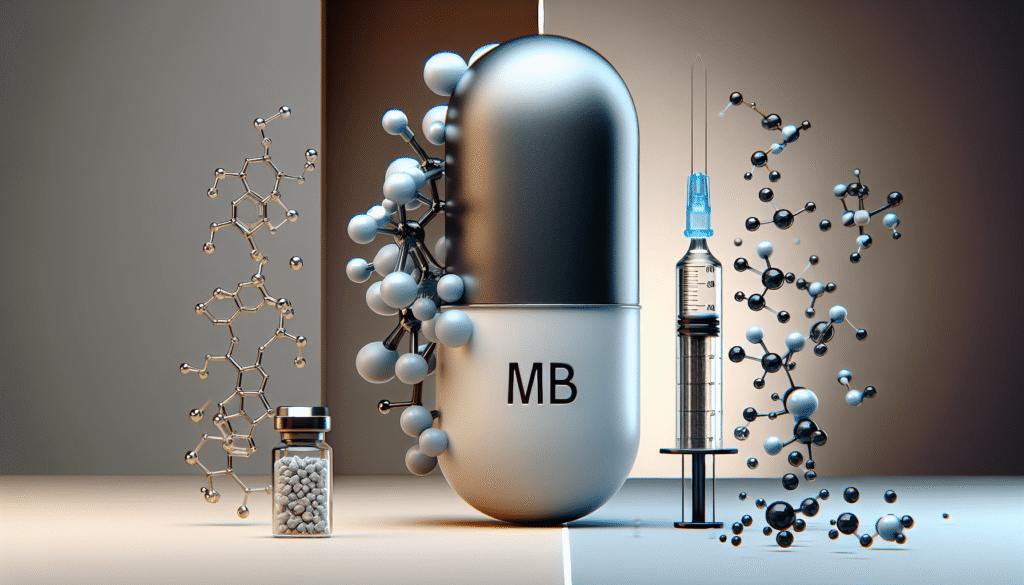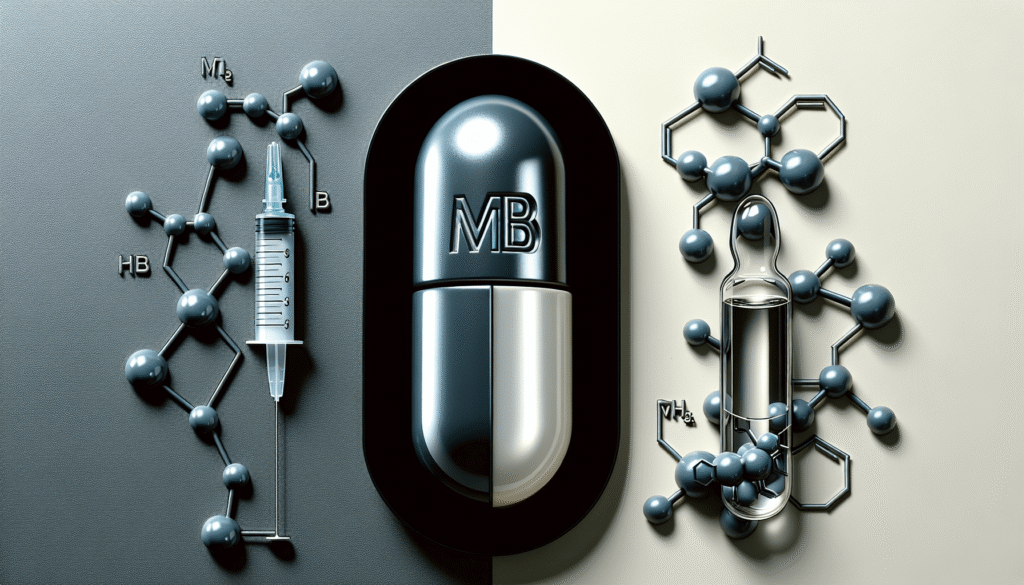
Have you ever wondered about the secrets to aging gracefully and living a longer, healthier life? It’s a question that’s been asked for centuries, and in recent years, two popular contenders have emerged in the world of longevity: methylene blue (MB) and peptides. Both have gained attention, but how do they actually work? Which one is better for extending lifespan and enhancing your quality of life? Let’s break it down together.

Understanding Methylene Blue (MB)
Methylene blue is a compound that’s been around since the late 19th century. Initially used as a dye, it has gained recognition for its potential health benefits, especially in the field of longevity.
What is Methylene Blue?
Methylene blue is an organic compound that can be used both as a dye and a medicine. In the context of health, it’s often discussed for its neuroprotective properties, potential to enhance cognitive function, and its role in cellular metabolism. When you think about longevity, you might not immediately associate a dye with health, but its effects could surprise you.
How Does it Work?
The primary mechanism of methylene blue involves its action as an antioxidant. Antioxidants are vital because they help combat oxidative stress—one of the culprits of aging. By reducing oxidative stress, MB may help protect cells from damage, which in turn can contribute to longer and healthier living.
Additionally, MB has been shown to enhance mitochondrial function. Mitochondria are often referred to as the powerhouses of the cell; they’re responsible for producing energy. When they work efficiently, your body can perform at its best, contributing to both health and longevity.
Potential Benefits of Methylene Blue
Let’s talk about some of the hypothesized benefits you might be interested in if you’re considering methylene blue for longevity:
| Benefit | Description |
|---|---|
| Neuroprotection | May protect the brain from age-related cognitive decline. |
| Antioxidant Properties | Helps combat oxidative stress that accelerates aging. |
| Mitochondrial Enhancement | Enhances energy production in cells, promoting better overall health. |
| Possible Anti-Aging Effects | Some studies suggest it may have effects that can promote longevity. |
| Mental Clarity | Users often report improved focus and memory. |
Risks and Considerations
As with any supplement or compound, there are potential downsides. Methylene blue can cause side effects like nausea, headaches, and digestive upset. It’s crucial to consult with a healthcare professional before considering it for long-term use.
Peptides: Longevity’s New Frontiers
Peptides are short chains of amino acids, and they’re getting a lot of buzz in the health world lately. Known for their ability to send signals to cells, peptides are playing a significant role in various bodily functions.
What Are Peptides?
Peptides are essentially the building blocks of proteins. When you think about peptides, think about them as a communication system in your body. They can influence everything from inflammation and immune response to muscle growth and repair.
Types of Peptides
There are many types of peptides, each with unique functions. Here are a few that are particularly well-known in discussions of longevity:
| Type of Peptide | Function |
|---|---|
| Growth Hormone Secretagogues | Stimulates the release of growth hormone, which can aid in tissue repair. |
| Argireline | Often referred to as “Botox in a bottle,” it targets wrinkles and fine lines. |
| Collagen Peptides | Supports skin elasticity and joint health, potentially reducing aging signs. |
| Thymosin Beta-4 | Promotes healing and recovery in tissues. |
How Do Peptides Support Longevity?
Peptides work by targeting specific pathways in the body. For example, growth hormone secretagogues can enhance your body’s natural growth hormone levels, which are crucial for muscle growth and fat loss. As you age, these levels decline, leading to various health issues. Peptides can help mitigate some of these effects, promoting a healthier aging process.
The role of collagen peptides is particularly fascinating. Collagen is essential for skin health, and as your body produces less of it with age, adding collagen peptides can support skin elasticity, potentially keeping you looking younger while also aiding in joint health.
Risks and Considerations
While peptides can offer significant benefits, they are not without risks. Depending on the type you’re considering, side effects can include allergic reactions, digestive issues, or other health concerns. Always ensure to speak with a healthcare provider to navigate these waters safely.
Comparing MB and Peptides for Longevity
So, how do methylene blue and peptides stack up against each other when it comes to longevity? It’s important to consider their mechanisms, benefits, and potential risks.
Mechanisms of Action
Methylene Blue
- Antioxidant effects reduce oxidative stress.
- Enhances mitochondrial function for better energy production.
Peptides
- Signal specific pathways that promote healing, growth, and repair.
- Support skin health and muscle recovery.
Benefits Overview
| Feature | Methylene Blue | Peptides |
|---|---|---|
| Neuroprotective Effects | Yes | Some peptides like Thymosin Beta-4 can help |
| Antioxidant Properties | Strong | Varies by specific peptide |
| Impact on Energy Levels | Enhances mitochondrial function | Depends on the peptide |
| Skin Health | Limited | Collagen peptides strongly support skin health |
| Cognitive Function Improvement | Yes | Some peptides can enhance cognitive function |
Risks and Side Effects
Both methylene blue and peptides come with their own set of risks, which are worth discussing:
-
Methylene Blue Risks: Possible nausea, headaches, and digestive upset. Interactions with certain medications can also occur, especially those that affect serotonin levels.
-
Peptide Risks: Allergic reactions, potential hormonal imbalance with certain peptides, and the risk of using non-regulated substances.
Which is Better for Longevity?
The answer to this question largely depends on individual needs and health goals. If you’re primarily concerned about cognitive function and oxidative stress, methylene blue might be worth considering. If your focus is on muscle recovery, skin health, or hormonal support, peptides may be more beneficial.
The Interplay Between MB and Peptides
Interestingly, some advocates suggest that methylene blue and peptides can work synergistically. By addressing different pathways, they may enhance each other’s effects. For example, you could potentially use MB to improve overall energy and cognitive function while utilizing specific peptides to support muscle growth and skin health.

Conclusion: What’s Your Path to Longevity?
Ultimately, the journey to longevity is a personal one. While both methylene blue and peptides present promising options, your choice should be aligned with your health goals and lifestyle.
Before jumping into the world of longevity supplements, take a moment to consider what specifically you’re aiming to achieve. Are you looking for sharper mental clarity? Reduced wrinkles? Enhanced muscle recovery? There’s no one-size-fits-all approach, and what works for one person may not work for you.
Whether you lean towards the antioxidant benefits of methylene blue or the targeted support offered by peptides, the essential first step is to educate yourself. Armed with knowledge, you will be prepared to make decisions that resonate with your health ambitions, laying the foundation for a life that’s not just longer but richer and healthier. Remember, it’s your body and your journey—make it count.